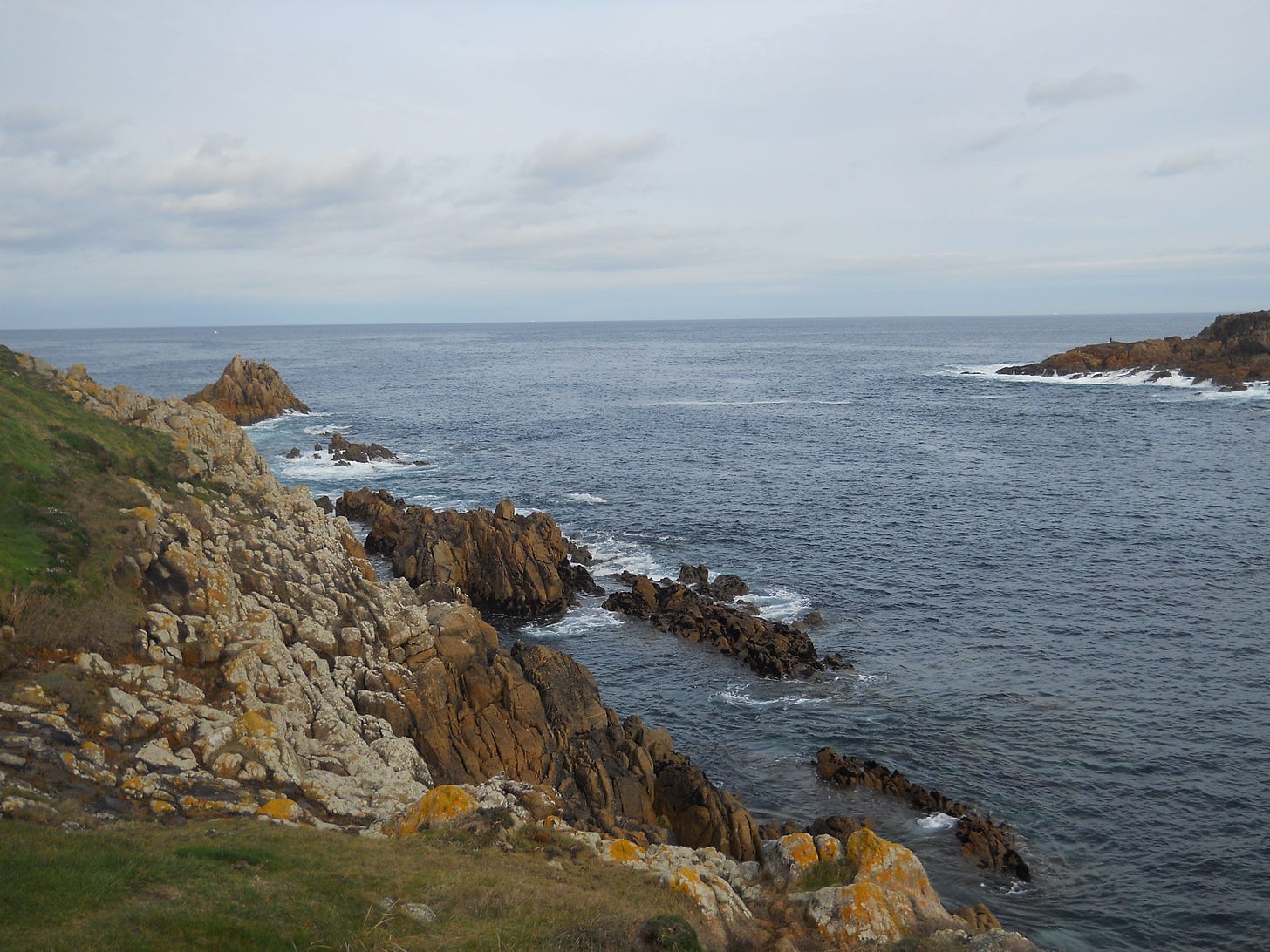Introduction
The imagination of nature is far greater than the imagination of man. - Richard Feynmann
First Impression Bias (FIB) refers to a fallacy in comparing earliest experiences in any given domain against all later phenomena.
The issue is that, at best, chronology has no correlation with wisdom. More likely, it has a negative correlation. Worse so, it takes more effort to unlearn behavior than it does to gain it.
Although we don't have enough time to process every piece of information against all other previous pieces of information, yet we vainly try and yet of equal importance they may be, our earliest data nodes are those which appear with greatest frequency, and therefore become overweight in our analysis. This causes overrepresentation and rumination of our initial steps, leading towards errors and stagnation in thought.
The Status Quo Bias is similar to FIB. The difference is that FIB’s base is in first exposure while Status Quo’s base is in current exposure.
FIB is not resolved by new permutations of old components (although doing so might be helpful), but by clarity, honesty, and living in accordance with nature.
Taking proper precautions to prepare and analyze our data storage is paramount. Awareness of this fallacy and methods of resistance against it will support a person in making successful decisions and analyzing the results of past ones.
Definitions
As always, I am trying to communicate ideas in a general form, so that it may support unexpected applications for the lives of the readers. I'd like to contrast the previous abstractness with some more grounded examples. Do not mistake that these examples are FIB. Rather, consider what they all have in common.
Imagine a Person (A) saying to a Person (B), a person with a bad imagination, that they have a bad imagination.
Person (B) tries to imagine a better imagination, and is unable to (due to their poor imagination), then, circularly, Person (B) concludes that their imagination is fine. By definition, they cannot imagine something better. It is literally impossible.
Everyone is Person (B), sometimes.
The beautiful thing, and what I suggest, is that we can be our own Person (A), as well. We can nudge ourselves towards the unknown. We can increase awareness.
Here are some more common applications of the fallacy:
Assuming that whatever is "average" (diet, sleep, screentime,) is healthy.
Understanding that a complete job change is more likely to increase salary & satisfaction than an internal promotion is, then not changing jobs.
Concluding that aesthetics are solely subjective; saying "it's just my taste!"
Having the words "It's like AirBnB..." or "It's like FaceBook, but..." in your company's elevator pitch.
Civil engineers who focus on traffic problems and resolve to solve them with the addition of another lane, rather than by reconsidering our technological reliance on the car.
Perpetually translating your first language while learning a foreign one
Having patriotism in spite of never having traveled, learned about other cultures, or (especially) learned about your own culture.
Assuming the historical moment you live harbors the most happiness or wealth.
Repeatedly entering abusive relationships that play out similar toxic dynamics first displayed by parents.
Assuming the conditions that once made you happy are now necessary for all of your future happiness.
How do you avoid such a fallacy? How can you imagine the unimaginable?
In Discovery
In pursuit of new knowledge, planned proceedings become progressively difficult until they are impossible. At a certain point, there's no one left to reference: you must become the referential. You must not only sail across a treachourous sea, your destination must be unknown. You must become both the teacher and the student of a new discipline.
This position, despite its discomfort, is the best place to be. If you're on the brink of knowledge, you're either creating or discovering something new. Intelligence and research ought to serve only as steps or vehicles toward discovery; they are not ends in themselves. The point is to build. Why race about waist-deep in informational sludge when you can instead fly?
What we envy in our heroes is not their accomplishments, but their allegiance to their heart. Do not follow in the footsteps of the old masters, instead, seek what they sought. This isn’t to say reference or inspiration is bad. It’s necessary to cycle through phases of innovation and research, or of planning and action.
Not everything deserves independent optimization. You can learn to drive quickest by getting behind the wheel and on the road as soon as possible, but if you’re risking your lives in the process, a slower approach is better. However, if the risk is only an intellectual, financial, or social “death”, the greater the risk, the greater the reward.
You don't want your life to be too easy, as to become thoughtless, taken for granted, or sloppy; nor do you want your experience to be impossible, as to become an unmotivated, injured, or perpetually tired person. The ideal zone is an elusive, constantly moving target. As soon as you have found it, you lost it. For your growth, you must make constant checks that you're where you're meant to be.
More people seem to lean towards being overly conservative about difficulty. Those who tend towards creativity, action, or ambition are obvious; they already know it about themselves. The world cannot stop making them aware. The world cannot stop telling them to stop. It's rare, but occasionally these people need to step back a bit, too.
The more serious (and common) problem is for the conservative types. They can easily live a drab, undisturbed life of misery. Like the "creatives", (everyone is a creative), they also have internal cries for experimentation. They just ignore them. You should consider it quite curious that we don’t kill our criminals (usually), but simply bore them. You already know what you feel and how to feel. There is no one to listen to you, if you don't first listen to yourself.
It’s a serious dilemma. The tantalizing draw of complacency, of FIB, is within its stupefying ease. But this, too, is fallacious. It’s easy only in the short term, and you do have to put in effort to keep up your old habits. It’s easy to be like Person (B) here, but remember, it’s necessarily impossible to imagine new things. There is no appropriate analog, hypothesis, or summary. You cannot experience vicariously.
If you play out your ideas far enough, you’ll probably find that many of your conclusions are completely incompatible with your present. Your friends, family, generation, country, and culture would probably disapprove. The thought is so uncomfortable most people repress it completely. But make no mistake: you cannot fool yourself after you have seen truth. In fact, the opposite conclusion is true: acting in accordance with one’s self is the greatest service, so do not censor your own thoughts.
A common hope is that on a long enough timeline you’ll be rewarded - that you’ll have the last laugh in the end! - but it’s irrelevant. Wisdom does not wait for nor seek reward. Control only that which you are able to (your effort), and lament not at the things which you cannot (your results). Let only your heart and the tides of time be your judge.
You are obligated to tend to your flowers whilst simultaneously defending them from the trampling allure of vanity publication, avarice, fashion, drama, - any and all fleeting ephemeralities.
Don’t think that after some you’ve found some success you are free: you are not. The “achieved” class finds continual difficulty. Proven authors, academics, or artists could easily fill their time taking on speaking requests or answering e-mails rather than doing the hard work that gained them their notoriety.
The hypnotizing draw toward time-killing tasks does not go away after any success. It does not discriminate based on class of any sort. Only in the culmination of unrelenting effort does a person maintain their dignity. Let your self-defined mastery be your only status.
In Creativity
Sorting data based on illogical or irrelevant tiers sculpts thinking about data relations toward the arborescence rather than the rhizomatic, ultimately limiting expression. I’m not so arrogant as to suggest the location of any treasures hidden in the sea. I can only suggest that SONAR is a search tool magnitudes better than a teaspoon.
The only purpose of a first draft is to exist. Do not become overly attached to it, nor complacent in aiding its evolution. Once again, it is only to exist. Pre-mature optimization kills projects.
Most importantly, do not make continual reference to what has worked in the past. Metrics lag. Do not place obstacles in your path then complain of them. Obstacles are the greatest blessing. They show you exactly how to proceed.
The heart is a unique organ, with senses just like the tongue. Take note of what you hate in others, you will find some of it within yourself. From there, if it is truly bad, put in effort in dispelling it from yourself. If it is not, put in the effort of acceptance.
In simplification, nothing needs to be added. Instead, things need to be subtracted. This is one domain in which children excel: they are all naturally curious. So, rather than adding new tools or frameworks, removing them will aid creativity.
You needn't increase your willpower. Just don’t put yourself in positions where you need to invoke it. You needn't beat odds, you just need to gamble only by requirement, with great care. You needn't control your emotions, but just let them flow through you. Correct systems become solutions.
Fallacies to avoid while avoiding the fallacy:
Do not realize some fault in your life, then behave in complete inversion, unexamined. To be ruthlessly opposite is to make continual reference to that which you wish to abolish.
Similarly, if you find some promise, do not pledge your immediate allegiance to all of its minutiae. Remain independent, and measure each component objectively.
Avoid being a compulsive dabbler, and worse so, do not mistake your dilettante tendencies for professionalism. There is wisdom in unexpected places, but do not let your excitement sacrifice your depth. To do so is to risk creating a new prison for your ego, all the while mistaken that you are setting yourself free.
Avoid both the stone bed and the pillow world: Allow and enable yourself to rest well, and to work hard.
Conclusion
There's lots of resources about how to best be a Type (B) ambitious person. Such instructions are self-contained: they are time-tested, self-referential, and worthwhile. The first 18 years of your life were probably spent in school, doing exactly this.
There is far less literature about cultivating Type A, however. The best instructions are found in simply beginning. Yes, the best advice I have is to just start. Stupid, I know. But any roadmap etched of a new path is necessarily inaccurate. There are no externalities in the internal game. Specific pointers can misguide. The best advice is to just start.
The fact that the phrase “ambitious person” generates a caricature means that our definition is too rigid. The properly ambitious is incomprehensible to all besides the beholder. Following folk ambition may motivate you to climb a mountain, but sticking to a sufficiently to yourself might grow a mountain beneath you.





